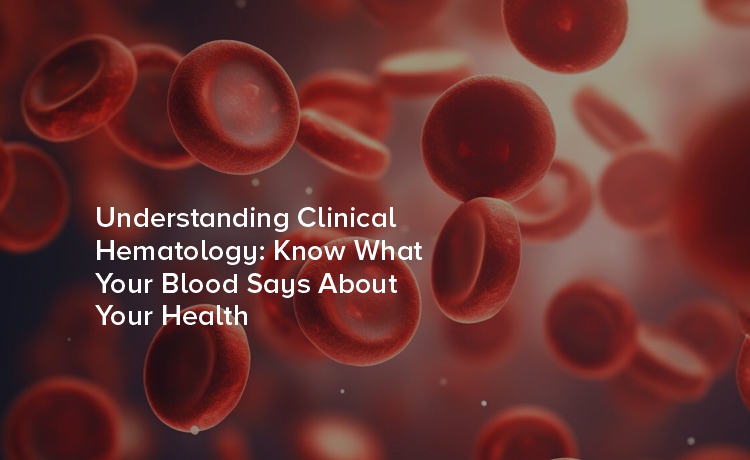
Have you ever been curious about what your blood can tell you about your health? Blood is a complex fluid filled with various components such as red and white cells, platelets, and plasma. All of these components serve essential functions within our bodies, and any changes in their levels can indicate a potential health problem.
Red Blood Cells: The primary function of red blood cells is to carry oxygen from the lungs to the body tissues. Hemoglobin, which is found in red blood cells, binds with oxygen and facilitates its transportation. Low levels of red blood cells or hemoglobin can indicate anemia, which can lead to symptoms such as fatigue and weakness. High levels of red blood cells indicate Polycythemia Vera which can lead to symptoms like stroke/ heart attack.
White Blood Cells: White blood cells are an essential component of our immune system and help defend our bodies against disease and infection. An elevated white blood cell count may indicate the presence of an infection or inflammatory response in the body. On the other hand, a low white blood cell count can indicate a weakened immune system. High WBC indicates more alarming & may indicate Blood Cancer. Further evaluation is required for the confirmation of the same.
Platelets: Platelets play a crucial role in clotting, helping to form a blood clot to prevent excessive bleeding. A low platelet count can result in excessive bleeding, while a high platelet count can result in blood clots.
Plasma: Plasma is the liquid portion of our blood and contains various proteins, electrolytes, hormones, and waste products. A high level of proteins in the plasma may indicate a chronic illness or infection like multiple myeloma, while a low level of proteins can indicate problems with the liver or kidneys.
Blood Disorders: Abnormalities in blood components can lead to various blood disorders such as clotting disorders, hemophilia, or leukemia. It is imperative to monitor any changes in blood components, as early detection and treatment can significantly impact a person’s quality of life and long-term health.
Conclusion:
Your blood tells a story about your health, and it is essential to have regular blood tests to monitor any potential changes. Knowing your blood’s composition can help detect and diagnose various health problems, allowing for prompt and effective treatment. By understanding the science behind clinical hematology, we can take proactive measures to achieve optimal health and well-being. So, the next time you get your blood drawn, take some time to understand what your blood says about your health and what you can do to keep it healthy. American Oncology Institute has the best team of Hematologists to deal with various blood related problem like Blood Cancer, Complex Bone Marrow Transplants and Cellular Therapies.